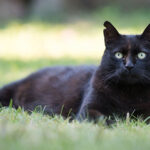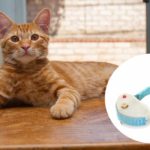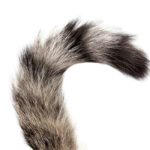I’ll bet you’re already familiar with cats’ cheek whiskers. They’re some of the most iconic facial furniture in the animal kingdom. But you’re … [Read more...]
What Does A Notched Ear On A Cat Mean?
What does a notched ear on a cat mean? There are several reasons why a cat might appear to have a notch missing from one or both of their … [Read more...]
Cat Shock Collar – Are They Safe And Do They Work?
A cat shock collar looks like a normal pet collar, with a large and cumbersome box attached. The box delivers an electric shock to the animal wearing … [Read more...]
How Long Can You Leave A Cat Alone?
It will vary depending on your cat’s breed, how prepared you are, and your cat’s age. But, for most adult cats, leaving them alone whilst you work, or … [Read more...]
Newborn Kittens: Size, Growth, Development & Care
Newborn kittens are tiny, furry and completely dependent on their mother for food and warmth. Weighing just a few ounces, baby kittens will spend the … [Read more...]
Diatomaceous Earth For Cats – What Is It And What Can It Do?
Diatomaceous earth for cats has risen sharply in popularity in recent years. Whether it's as a pesticide for worms or fleas, or to reduce the stink … [Read more...]
What Do Cats Eat In The Wild?
What do cats eat in the wild? Wild cats, like domestic and feral cats, eat exclusively other animals. They are obligate carnivores, so can get all the … [Read more...]
Cat Colors – Unravelling The Secrets Of Cats’ Beautiful Coats
There are hundreds of possible cat colors and patterns. Some are very common, whilst others are unique to a single breed. But amazingly, they are all … [Read more...]
What to Do When Your Cat Catches a Mouse
Knowing what to do when your cat catches a mouse is a skill most cat owners have to learn. Hunting is a natural instinct for our domestic cats, and … [Read more...]
Why Do Cats Wag Their Tails – A Guide To Cat Tail Language
Why do cats wag their tails? What does it mean when a cat wags its tail? Well, when a cat waves his tail, they are sending a strong message. We’re … [Read more...]
- 1
- 2
- 3
- …
- 6
- Next Page »









